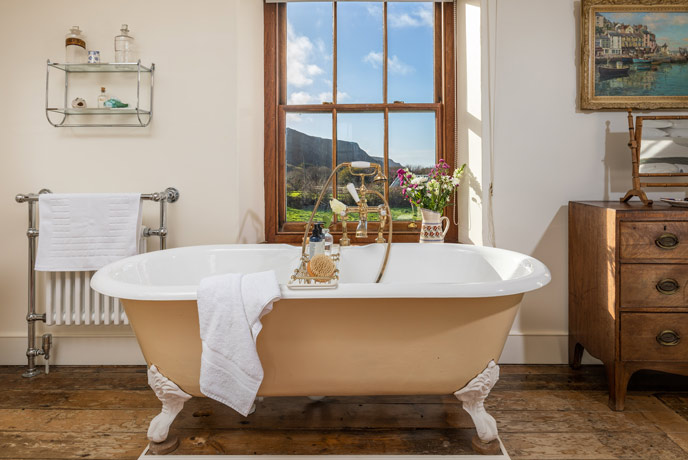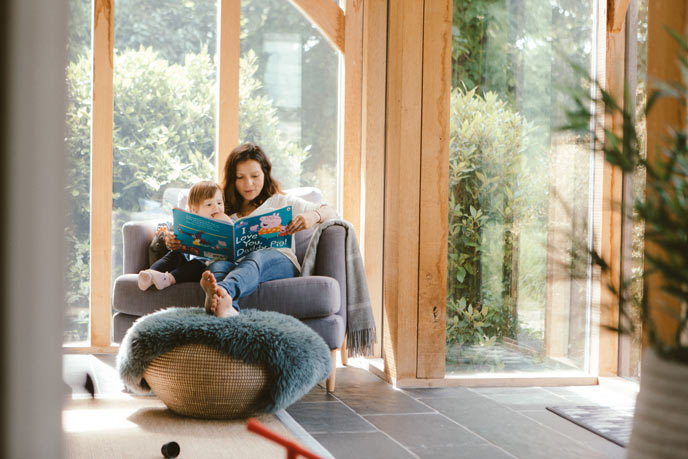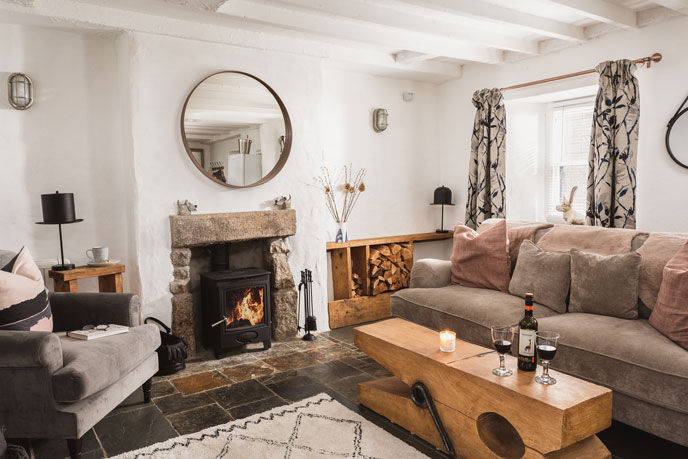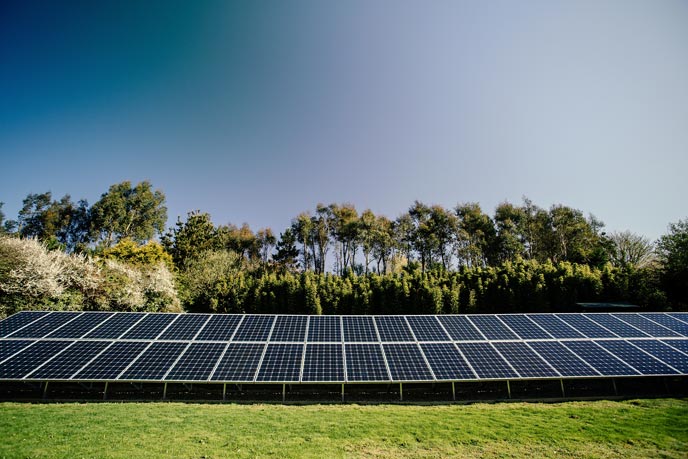Cutting energy costs in your holiday home
Letting with classicEngergy: Keep your costs down - maximise the return from your property
Simple sums, eh? As we know the snag with this as a holiday cottage owner, is that one area of your cost base is not entirely under your own control…
To almost quote Jane Austen, it is a truth universally acknowledged, that a visitor in possession of a good cottage during cold weather will cost you a small fortune.
A sad fact, but guests can be over generous with the thermostat…especially if they aren’t paying directly for the bill. And of course the time of year when this hurts the most, is the same time of year when rent bands generally aren’t at their strongest – a nuisance isn’t it?
The following four areas give you a starting point to consider cutting energy costs without resorting to chaperoning your guests during their stay. It isn’t intended as a comprehensive guide but rather to help start the thought process and give you a few useful rules of thumb:
Bath time or filling a sieve?

First, consider the energy use at your holiday cottage in simple terms. It is, in essence, very much like filling up a bath.
You pour energy in to fill the cottage up, and, the more sieve-like the cottage actually is, the quicker you pour. Obviously the quicker you pour, the more you pay.
As a receptacle a cottage has a finite number of routes energy can escape from – walls, floor, roof, windows & doors (open or closed). So, let’s start with thinking about the fabric of the cottage and plan a programme of gradual improvements, to do what is possible whilst respecting the character of the building. As is usual in property investments, with most (but not all) of this advice I am assuming you are in it for the long term.
Roof: 270 mm of loft insulation is a cost effective no brainer. Heat rises, so let’s give ourselves a fighting chance of keeping it down where it should be. Proper loft insulation can reduce heat loss by as much as 25% and give a payback on investment in just 1-4 years. The warmer the cottage, the less tempted the visitor is to keep dialling up the central heating. (I know, I know, what about windows being left open? I take your point. Hang on though for now, as I’m getting there).
Walls: Not many owners or property managers will be that keen on external cladding (!) but, when you are next redecorating through your property, consider installing insulation on the interior face of external walls. Disruptive if you are not in redecoration mode, but quite straight forward when you next are; all without drastically changing the internal character of your property. Around 10% of a buildings heat gets lost through walls without insulation.
Floors: Often overlooked and can also account for 10% of a building’s heat loss. With a suspended timber floor, when decorating lift the floorboards and lay mineral wool insulation supported by netting between the joists to catch the energy which would otherwise leak out the bottom…so to speak. Make a note for the next redecoration period, to think forward, do the sums on installation and consider making the investment.
Doors: Ensure draught excluders are in place, fit effectively, and, with a little care, the dubious charm of an old house with a howling gale under the front door is avoided. When replacing doors approach replacement in the same vein as with windows – i.e. maintain the property character but as energy-efficiently as possible.
Windows: Glass can account for 25% of heat loss from a building. When looking at replacement windows, seek tasteful high energy efficiency units….but don’t necessarily assume triple glazing is always better than double. Check the BFRC rating. If you can’t install double glazing – if it would simply be cottage-sacrilege, you are listed or in a conservation area – you can still install secondary glazing, or use heavy curtains, or indeed do both.
Without policing customers (never a great way to encourage their return), it is obviously hard to stop windows simply being left open and to start paying to heat the atmosphere. But you can encourage some customers to take a moment to stop and think. Of course, it won’t always work but it is worth the effort as some thoughtful souls will happily take note.
Managing Behaviour

Helpfully, minimising your energy costs conceptually sits well with encouraging your guests to do their bit for the environment whilst away on holiday. As such encourage customers to be energy-aware and discuss with your Property Manager how you can gently encourage them towards more energy-responsible behaviour…and save yourself a few quid in the process.
A friendly note or two in the Cottage Information Folder can really help. Friendly, as ever, being the watch word. Over time, little wins across a percentage of guests mount up.
Another approach which is neat, and can add a sophisticated feature to the customer experience is to install ‘smart home technology’. These clever systems can manage heating, lighting, audio-visual entertainment, security, the list goes on….and when all set up correctly are impressive.
To the holiday cottage owner this gives the chance to pre-programme heating and set defaults as to when it goes on and off and to shut down when guests go out and wake up upon their return. Clever stuff. When you know the house is empty during free weeks you can remotely put the house into shutdown and everything just switches off…
Household Appliances
As each appliance in your property comes to the end of its useful life, source appliances that carry the Energy Saving Trust recommended certification mark I.E. those that are A, A+ or A++. Do however ensure that they are sized correctly for use, as, for instance, an over-size A++ fridge freezer appliance will cost you more to run than a correctly sized A+ unit.
Heating, Lighting & Renewable Technologies

Having invested in low energy light bulbs, or LEDs, a deeper look at these areas is very worthwhile.
Extensive books have of course been written on each, but a few general rules of thumb are useful to bear in mind. Clearly modern, high efficiency boilers are best (take a road-test report approach to selecting your next) and the pecking order in terms of cost effectiveness to run, is currently mains gas, followed by oil, followed by electric.
Above all else, shop around for your energy. Do the comparison websites and don’t get stung by inertia inhibiting you moving energy providers. Paying over the odds on energy is simply profit down the drain.
If you have a well-insulated property (this is important!) then considering a ground or air source heat pump is sensible. They currently benefit from the Renewable Heat Incentive government incentive which helps pay back on the cost of installation. Siting the unit somewhere discrete is important and not too near doors or windows as they can make a light noise. Get good advice from an accredited installer as we have seen some wholly inappropriate installations where the energy efficiency of the building would simply never allow the system to work effectively.
Bio-mass boilers are another renewable alternative, also qualifying for the Renewable Heat Incentive but I must say that personally I am not a great fan. The fuel is, in effect, a commodity, which I hesitate to recommend hitching up to for the future unless you have your own stockpile of timber. Compare this with other renewable technologies where it is hard, for instance, to create a market out of daylight and I think you’ll see where I’m coming from.
Solar thermal also qualifies for the Renewable Heat Incentive for producing hot water if a lot of hot water is consumed on site, but generally I prefer its electricity producing cousin – Solar Photovoltaic. This is a closing window, but if you move quickly, then you can still benefit significantly.
Yes, Solar panels. And no I haven’t completely lost track of the audience I’m writing for. If you have an annexe or outbuilding on site, or a larger garden area (for a small frame system) then this is really quite feasible without destroying the character of your property.

The following websites are also a useful source of more energy-saving/management advice:
www.energysavingtrust.org.uk – impartial advice on energy saving for homes & businesses
www.yougen.co.uk – Independent, consumer lead advice on Renewable Technology


